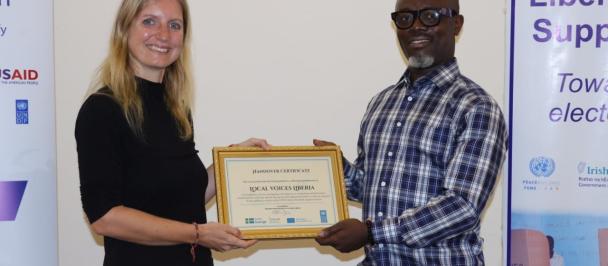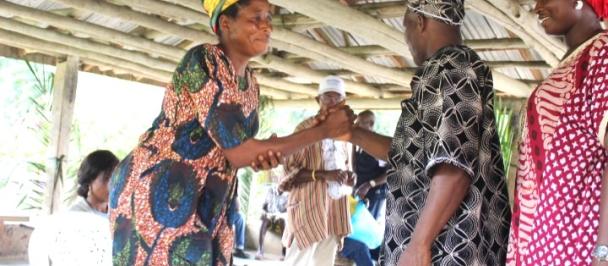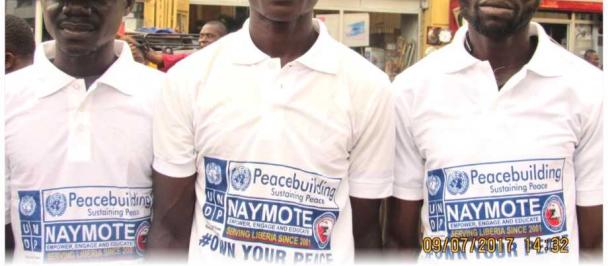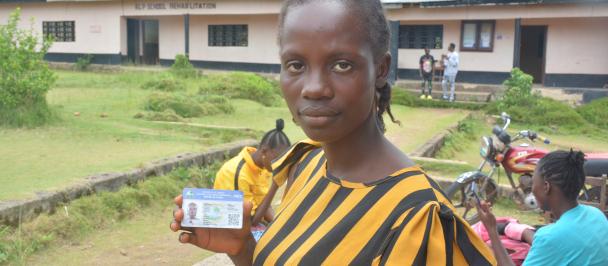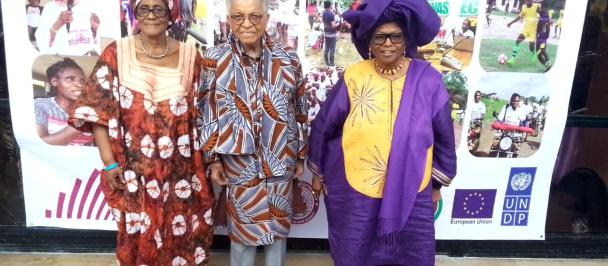The Truth and Reconciliation Commission (TRC) mentioned the use of the Palava Hut Hearing Model as a useful tool for peace building, healing and national reconciliation at both the national and district levels.
Liberia this week began another round of Palava Hut hearings in Central C District, Rivercess County, where over 30 mass graves were documented. The Palava hut hearing is one of the 142 recommendations of the country’s Truth and Reconciliation Commission (TRC) final report published in 2009.
The Hearings provide an opportunity for alleged perpetrators and victims of lower gravity of human rights violations such as arson, forced labour and displacement that took place during the civil war, to dialogue and be reconciled through truth telling, atonement and psychosocial support.
The Rivercess hearing, running from 13 to 19 July 2021, precedes statement taking, vetting of witnesses, and providing them with pre- and post-psychosocial support.
It is being conducted by the country’s Independent National Commission on Human Rights (INCHR), with support from UNDP.
Traditional elders and community leaders with guidance from the INCHR are presiding over the hearing, where truth-telling by both victims and perpetrators is done to establish a common ground for peace and reconciliation.
A hundred and forty (140) people including victims, alleged perpetrators and their families are participating in the hearings being held in Neezuin, Saryah and Garpue towns.
“UNDP is supporting the Government of Liberia to implement the recommendations of the Truth and Reconciliation Commission in the quest for a more reconciled and cohesive society, which serves as an impetus for sustainable development. The participation of the people of Rivercess Centre “C” District in this process is a demonstration of their willingness to let go of the past, forge genuine reconciliation and a more cohesive society,” said James Monibah, UNDP’s Team Lead for the Governance Programme.
The TRC recognized the Palava Hut model as a useful tool for peace building, healing, national reconciliation and restorative justice. The Independent National Commission on Human Rights, per section 46 of the TRC ACT of 2005 is mandated to oversee the implementation of the TRC recommendations, while the civil society is tasked to monitor and campaign for the implementation of the recommendations.
To date, the Commission has conducted similar hearings in Tchien District in Grand Gedeh County (2016), Voinjama District in Lofa County (2017) and Tewor District in Grand Cape Mount (2020).
These hearings have brought closure to victims and provided a space for people, families and communities.

 Locations
Locations